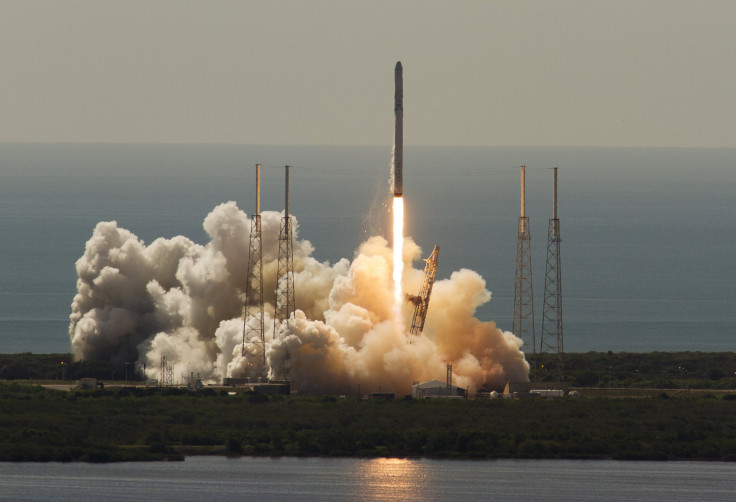SpaceX Falcon 9 Flight Gets FAA Nod, Launch Of 10 Iridium Satellites Confirmed For Jan. 9

It is finally confirmed. After a four-month gap, SpaceX has received the all-clear to resume flights starting Jan. 9, when a Falcon 9 rocket launch is scheduled to carry 10 Iridium NEXT satellites into low Earth orbit.
The private companies were both talking about the upcoming launch Thursday, but there was a regulatory hitch: the Federal Aviation Administration had yet to officially sign off on the launch. After a Falcon 9 rocket exploded during refueling Sept. 1 on SpaceX’s Cape Canaveral launch pad in Florida — destroying a Spacecom-built AMOS-6 communications satellite to be used by Facebook for providing internet coverage in Africa — both FAA and NASA had to accept the company’s investigation into the accident before it could resume operations.
While NASA had cleared the company already, the FAA clearance came Friday, which grants SpaceX permission for seven launches of a Falcon 9 version 1.2 rocket, with the purpose of placing in low Earth orbit a constellation of 10 Iridium NEXT satellites each.
In a statement Friday, McLean, Virginia, company Iridium also disclosed the time for the Jan. 9 launch. Weather conditions permitting, the Falcon 9 rocket will take off from the SpaceX launch pad at Vandenberg Air Force Base in California at 10:22 a.m. PST (1:22 p.m. EST)
Matt Desch, Iridium CEO, said in the statement: “The Iridium team has been anxiously awaiting launch day, and we’re now all the more excited to send those first ten Iridium NEXT satellites into orbit.”
After placing the Iridium satellite constellation in its orbit, the Falcon 9 rocket will attempt to land on a floating barge, from where SpaceX will retrieve it so it can refitted and reused. The reusability of rockets drives down the cost of launches, making them commercially viable for a private company.
Currently, SpaceX has about 70 launches in its order book, estimated to be worth over $10 billion. Due to delays caused by the Sept. 1 incident, some companies, like British satellite company Inmarsat, have already taken away some business from the Elon Musk company and given it to its competitors.
© Copyright IBTimes 2024. All rights reserved.











